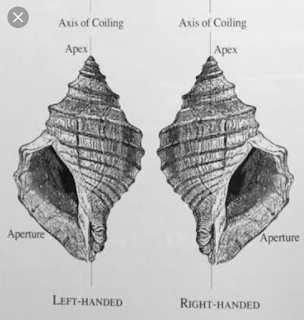DNA :Structue and Functions
Deoxyribose nucleotide acid is polymer of deoxyribonucleotide. Each deoxyribonucleotide is made up of Ribose sugar, phosphate, and Nitrigenous base.
- Sugar: DNA consist deoxyribose* sugar .
- Nitrigenous Base : It is of two types.
- Purines : Adenine (A), Guanine (G) are purines,9_membraned double ring structure having N at 1,3,7,9 position
 |
| Add caption |
- Pyrimidines : Thymime (T) ,Cytosine (C) are Pyrimidines, 6_memberaned single ring structure having N at 1,3 position.
Bonding in DNA
There are two types of binding present in DNA i .e. Hydrogen bonding and covalent bonding.
Hydrogen bonding is present between nitrogenous bases. Adenine joined by double bond with Thymime . Guanine joined with cytosine by Triple bond.
Covalent bonding : Phosphodiester bond is formed between 5'phoshphate group of one nucleotide with 3'OH of another nucleotide.
Bond between nitrogenous base and sugar is known as glycosidic bonds.
X-ray diffraction method
Maurice Wilkins, Rosalind Franklin obtained very fine X-ray diffraction. These patterns of DNA isolated from different organisms were found to be essemtially same. DNA is crystalline stage, the double helix makes one full turn every 34 angstrom.
But they had not proposed a definite model for DNA.
Watson and Crick model
James Watson and Francis Crick proposed helical structure of DNA. There research was based on X ray diffraction's result and Erwin Chargaff's research.
The salient features of double helical model of DNA is following :
- DNA is made up of two polynucleotide chain having sugar-phoshpahte -sugar -phosphate backbonding.
- The polynucleotide chains have anti parallel polarity.
- There is hydrogen bonding between bases of two chains.
- The two chains are coiled in right handed fashion.
- Distance between two paired nucleotides is 0.34nm.
- Each turn of double helix contains 10 base pair.
Erwin Chargaff rule
He measured the quantity of bases in DNA. This rule is not applicable for single stranded DNA. He states following statement
Purines are always equal to Pyrimidines.
- A=T or A/T =1
- C=G or C/G =1
- A+G=T+C
- A+C=G+T
- Ratio of A+T/C+G usually differs.
Hydrogen bonding covalent bonding, vander wall forces and surrounded sheath of water stabilize the structure of DNA.
Functions of DNA
DNA performs a lot of functions such as
- Storage or transferring of genetic material.
- Helps in production of proteins
- Mutation
- Recombination
- Gene expression








Okay! Even a commerce student love it.this is amazing.
ReplyDeleteThnku...
Deletenyc work
ReplyDeleteThnx
DeleteFantastic work
ReplyDeleteThnku
DeleteIt's reqlly good
ReplyDeleteThnku
ReplyDelete